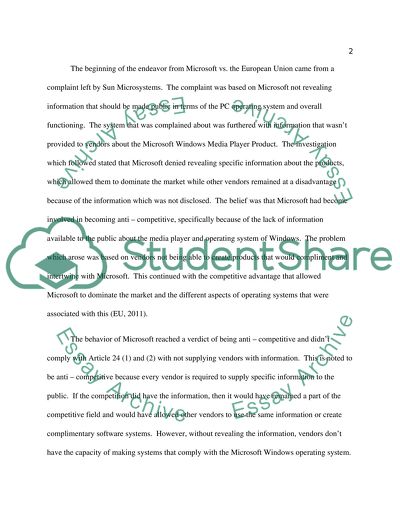Cite this document
(Microsoft versus European Union - Anti Competitive Behavior or Competi Case Study, n.d.)
Microsoft versus European Union - Anti Competitive Behavior or Competi Case Study. Retrieved from https://studentshare.org/law/1437397-microsoft-vs-european-union-anti-competitive
Microsoft versus European Union - Anti Competitive Behavior or Competi Case Study. Retrieved from https://studentshare.org/law/1437397-microsoft-vs-european-union-anti-competitive
(Microsoft Versus European Union - Anti Competitive Behavior or Competi Case Study)
Microsoft Versus European Union - Anti Competitive Behavior or Competi Case Study. https://studentshare.org/law/1437397-microsoft-vs-european-union-anti-competitive.
Microsoft Versus European Union - Anti Competitive Behavior or Competi Case Study. https://studentshare.org/law/1437397-microsoft-vs-european-union-anti-competitive.
“Microsoft Versus European Union - Anti Competitive Behavior or Competi Case Study”, n.d. https://studentshare.org/law/1437397-microsoft-vs-european-union-anti-competitive.


